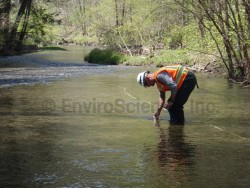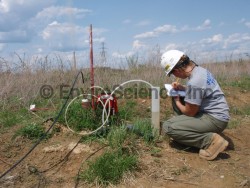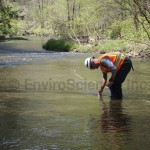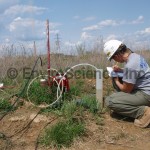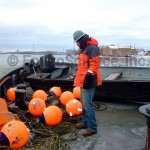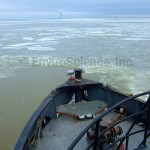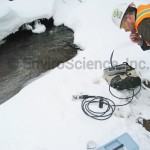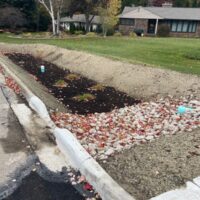Understanding water quality is a vital part of management and planning for municipalities, industrial dischargers and private landowners. Government regulations have set specific thresholds for individual constituents in both river and lake systems which aim to protect the overall health of aquatic systems. For example, dissolved oxygen concentrations below 4.0 ppm for extended periods of time can result in an impact to the fish community.
For this reason, regulating agencies issue National Pollutant Discharge Elimination System (NPDES) permits requiring dischargers to comply with nutrient loading limitations to prevent dissolved oxygen from decreasing below 4.0 ppm. Permits are issued for nutrients, metals, organics, inorganics, oil and grease as well as many other parameters.
Water Quality Testing
EnviroScience performs a variety of water quality studies to support a diverse array of projects such as:
- Site Investigations
- Remedial Project Design
- Biocriteria Development
- Designation Determination
- Permit Issuance
These studies are often completed in conjunction with these additional services provided by EnviroScience:
- Biological Evaluations
- Watershed Analysis
- Litigation Cases
- 316(a) & 316(b) Evaluations
- TMDL Studies (both design & conduct stages)
EnviroScience has completed many water quality studies to address general water quality as well as site-specific issues. Over 30 years of experience enable us to tailor a study specific to your circumstances. Our experts excel in difficult monitoring situations, and our studies have been designed for projects requiring multiple sample locations, water depths up to 50 feet, and water bodies of all sizes including small streams, major rivers, Great Lakes, and coastal marine environments.
Typical studies conducted as part of water quality evaluations include detailed analytical sampling, mixing zone modeling support, thermal studies, dissolved oxygen profiles, and trophic state index (TSI).
Water Quality Sampling
Detailed Analytic Sampling & Mixing Zone Modeling Support
Detailed analytical sampling involves monitoring specific constituents from a discharge and comparing the data to ambient conditions, which are often completed in conjunction with mixing zone studies for NPDES-permitted discharges. Projects are designed to collect analytical data that reveals the exact dispersion and “mixing” of the effluent once it enters the receiving water. These studies often result in less stringent limits for the permit holder’s effluent discharge. EnviroScience can also design studies to evaluate other water quality parameters such as nutrient loading, E. coli, turbidity (suspended solids), and metals.
Dissolved Oxygen Profiles
Dissolved oxygen studies most often evaluate lake systems which stratify in the summer months. This stratification results in an anoxic zone (no oxygen) which can be localized to the lake bottom or comprise most of the water column. Anoxic zones can also be created when excessive organic pollution is present. Nuisance algal blooms can occur which can inhibit photosynthesis and create dissolved oxygen depletion. When present, the anoxic zone limits available habitat for fish and microorganisms. Monitoring dissolved oxygen is a method to identify problem areas and determine if supplemental aeration is necessary to promote lake health.
Trophic State Index (TSI)
The Trophic State Index (TSI), an internationally recognized and accepted technique for assessing lake productivity and health, was developed by Dr. Robert Carlson of Kent State University, who is also associated with EnviroScience as a consulting scientist. The TSI measures water clarity, phosphorus, and chlorophyll production to calculate a numeric score which indicates a lake’s trophic state (i.e., productivity). TSI values can be compared to lakes in a respective region or anywhere in the country to get an idea of relative health.
In Action
Need help with your project?
Our experts are here to discuss your needs and how we can help you move your project forward. Fill out the form below for more information on our services or to request a quote and we’ll get back to you within 24 hours. If you need a response within an hour or less, please call us at 800-940-4025.
Few environmental firms in the country retain EnviroScience’s degree of scientific know-how, talent, and capability under one roof. The diverse backgrounds of our biologists, environmental engineers, scientists, and divers enable us to provide comprehensive in-house services and an integrated approach to solving environmental challenges—saving clients time, reducing costs, and ensuring high-quality results.
Our client guarantee is to provide “Excellence in Any Environment,” meaning no matter what we do, we will deliver on our Core Values of respect, client advocacy, quality work, accountability, teamwork, and safety. EnviroScience was created with the concept that we could solve complex problems by empowering great people. This concept still holds true today as our scientists explore the latest environmental legislation and regulations and incorporate the most up-to-date technology to gather and report data.
EnviroScience expertise includes but is not limited to: aquatic survey (including macroinvertebrate surveys and biological assessments); ecological restoration; ecological services (including impact assessments, invasive species control, and water quality monitoring); emergency response; engineering and compliance services; endangered mussel surveys; laboratory and analysis; stormwater management; threatened and endangered species; and wetlands and streams (including delineation and mitigation). Further, EnviroScience is one of the few biological firms in the country that is a general member of the Association of Diving Contractors International (ADCI) and offers full-service commercial diving services.



